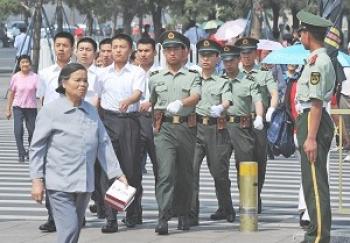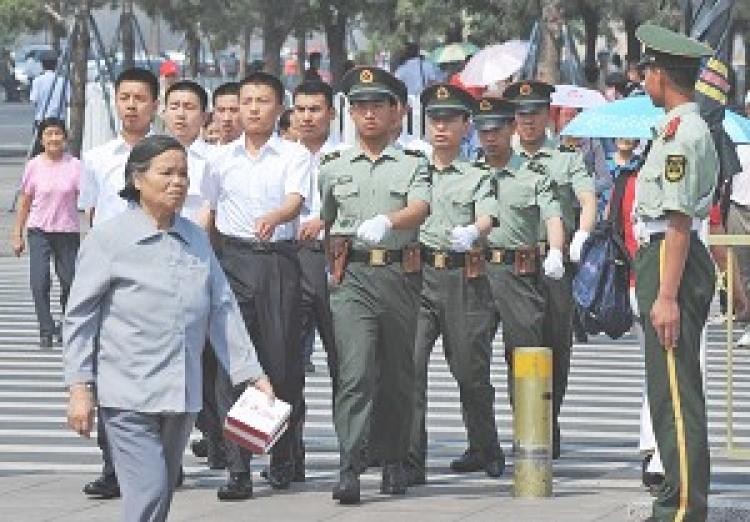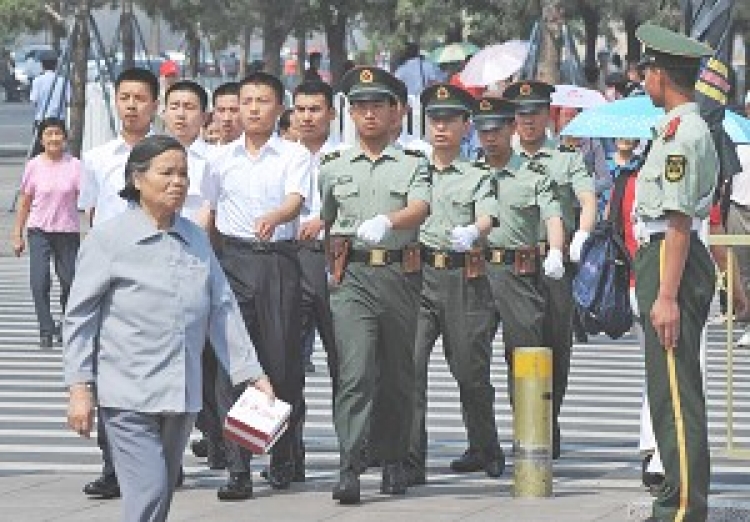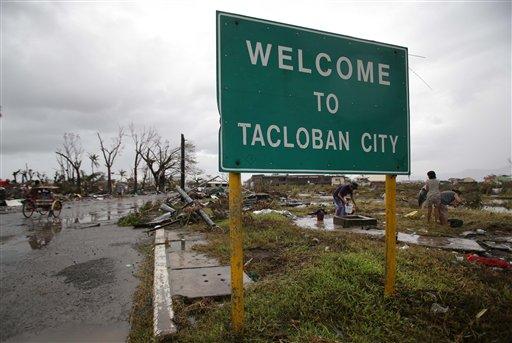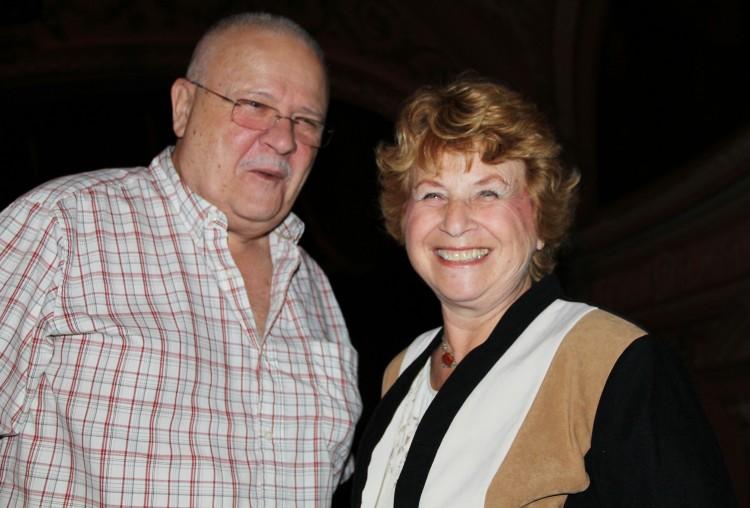Be it tougher visa requirements for foreign businessmen or overt intimidation of critics, the lead-up to the Beijing Olympics is shaping up to be far from the Games slogan “One World One Dream”.
The Australian business community has expressed concern that tough visa restrictions into China are making it difficult to do business there.
Beijing authorities changed China’s visa policy in May this year citing security measures for the Olympic Games, due to commence August 8 in Beijing.
According to the Australian Financial Review (AFR), a number of companies, including the National Australia Bank and the law firm Mallesons Stephen and Jaques, were forced to reschedule meetings as visa applications were taking up to a month to process.
Beijing – the City of No Fun
Security measures within China have also been heightened with reports that guards now patrol Beijing airport with machine guns and the city is full of police inspecting subways and transport centres.
One Australian businessman, who did not want to be named, told the AFR that rather than a celebratory atmosphere for the Olympics: “Beijing has become the city of no fun.”
While Westerners may be immune from the harshest restrictions laid down by Chinese authorities, dissidents and critics within China are paying a heavy price for their courage. Most have either been detained or are under constant surveillance.
Prominent Human rights laywer Gao Zhisheng, for example, has not been seen since being taken into custody early last year; environmental advocate Wu Lihong was sentenced to three years jail in August last year and AIDS and rights activist Hu Jia, was sentenced in April this year for “inciting subversion of state power” and sentenced to three and a half years in prison.
More recently, US Congressmen Frank Wolf, a Republican from Virginia, and Chris Smith, a Republican from New Jersey, were prevented from meeting with a number of Chinese campaigners for greater freedoms in Beijing.
According to Reuters, two of those campaigners were Beijing-based lawyers Li Baiguang and Li Heping, both of whom had met President Bush in the White House last month after receiving awards from the US National Endowment for Democracy.
Li Heping said he had been tailed and warned not to meet the US lawmaker while Li Baiguang, an evangelical Christian who had met George Bush once before, was not contactable and rumoured to be held by local police.
Media Crackdown
Increased restrictions on both foreign and local media have also surfaced, contrary to promises made to the IOC and legislation put in place last year to allow greater press freedom,
In a recent report, Human Rights Watch notes that at a time when greater transparency is needed, and expected, foreign journalists are suffering greater difficulties in accessing “forbidden zones – geographical areas and topics which the Chinese government considers ’sensitive' and thus off-limits to foreign media”.
The report also notes that Chinese journalists have incurred greater constraints with a warning issued just this June from President Hu Jintao that domestic media should “maintain strict propaganda discipline...and properly guard the gate and manage the extent [of reporting] on major, sensitive and hot topics”.
Violence Against Overseas Critics
Following the thuggish efforts of Chinese students to intimidate critics during the global tour of the Olympic Torch Relay, Chinese Communist Party(CCP) encouraged violence has again surfaced overseas.
Behaviour reminiscent of the Cultural Revolution has been most evident against Falun Gong practitioners and supporters of the Quit the CCP programme in Flushing, New York, but other incidents are appearing around the world, including in Australia.
In Flushing, mobs of heckling and abusive pro-communist Chinese suddenly appeared on the streets, aiming all their invective at the Quit the CCP centres, which had been previously unhindered in that area for over four years.
The police had to be called in to maintain a constant vigil and at least six pro-communist China supporters have since been arrested.
In Australia, incidents of group intimidation have recently surfaced at the Quit the CCP centre in Sydney’s China Town while two Falun Gong practitioners were attacked on two separate occasions by a Chinese tour bus driver at Lady Macquarie’s Chair in Sydney.
Sixty-year-old Ma Yongkang had her signboard smashed to the ground in May by the driver, who swore at her and threatened to kill her. Again in June, as Mrs Ma was talking to a tourist, the same bus driver pushed her away and screamed at her. A second practitioner, Mrs Liu was pushed by the driver and another man, who also tried to force her onto the bus.
On another occasion, Mr Ni, an engineer, was kicked twice by a Chinese student while handing out a newspaper critical of the Communist regime.
Mr Ni said the student came up to him smiling while he was standing outside Taylors College in Bourke Street, Waterloo.
“I thought he would accept the newspaper,” Mr Ni told The Epoch Times. “Then he kicked me twice in the important part and then he tried to escape.”
Mr Ni said he chased the attacker and caught him in the lift. The student, who had not said anything up to this point, then said: “Do you know who I am, who my father is?”
Mr Ni said he believed the student was the son of an important Communist Party official and believed he had been put up to it.
When a teacher at the college appeared, the student denied he had assaulted Mr Ni, but the teacher viewed the security video and verified that Mr Ni had indeed been attacked.
While Mr Ni did not know the name of the student, he said the incident had been reported to the local police station and the incident was being followed up.
